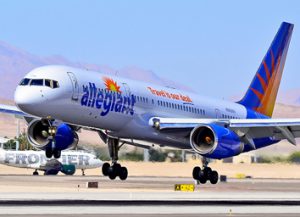United seeks to build its own diverse pipeline of pilots
United Airlines says it will train 5,000 pilots this decade, including taking on applicants with no flying experience, and plans for half of them to be women or people of color.
United Airlines says it will train 5,000 pilots this decade, including taking on applicants with no flying experience, and plans for half of them to be women or people of color.

The flights, which will run from May 27 through Labor Day weekend, will connect Indianapolis with cities in Maine and South Carolina.
U.S. air travel is already picking up. More than 1 million people have passed through U.S. airport checkpoints each of the last 11 days, with Sunday’s total topping more than 1.5 million for the first time in more than a year.

Airlines worldwide cut $1 billion of expenses a day last year to cope with the slump in passengers, and that’s given them some wiggle room to lower ticket prices.
Leading airline and business groups are asking the Biden administration to develop temporary credentials that would let travelers show they have been tested and vaccinated for COVID-19, a step that the airline industry believes will help revive travel.
Boeing has recommended that airlines ground all 777s with the type of engine that blew apart after takeoff from Denver this weekend, and most carriers that fly those planes said they would temporarily pull them from service.
The announcements come a day after United Airlines Flight 328 had to make an emergency landing at Denver International Airport after its right engine blew apart just after takeoff.
Airlines are strongly opposed to requiring coronavirus testing before domestic flights, saying it would further devastate air travel, which has still not returned even to half its pre-pandemic level.
Airlines are getting scrappy, shifting operations to wherever there may be demand. The Cliffs Notes version: Leisure is in, business travel is out.
United Airlines said Wednesday it will buy up to 200 small electric air taxis to help customers in urban areas get to the airport.
Officials are weighing health concerns against the economic impact a mandate might have on an industry already hobbled by the pandemic.

Routes to both cities begins at the end of May. The airline also plans to offer service from Indianapolis to Rapid City, South Dakota, in August for the Sturgis Motorcycle Rally.
On Thursday, Southwest, American and JetBlue reported that they lost a combined $3.5 billion in the final three months of the year. All issued dismal revenue outlooks for the current quarter.
New air travel restrictions enacted by the Biden administration and other nations to prevent the spread of new, more-contagious variants of the coronavirus might be affecting hopes for a speedy return to travel.
The airline said Monday that it will let passengers bring trained service dogs in the cabin, but it will no longer accept support animals, starting March 1.

Recently acquired by a private equity fund, Sun Country Airlines has added dozens of leisure-oriented routes and currently serves more than 50 destinations.
The number of passengers flying with companion animals grew rapidly in recent years, with some saying the animals helped them overcome anxiety and other issues.
Paying passengers were scheduled to board a Boeing 737 Max in Miami on Tuesday for the first time since safety regulators allowed the plane to fly again after two deadly crashes.
American and United Airlines, which together furloughed 32,000 employees in October, said Monday they will bring those workers back temporarily.
The 3.2 million passengers screened Friday, Saturday and Sunday mark the only time during the pandemic that over 1 million air travelers were seen three days in a row nationwide.